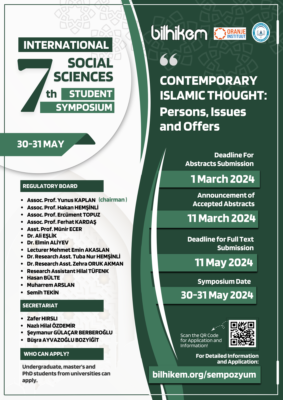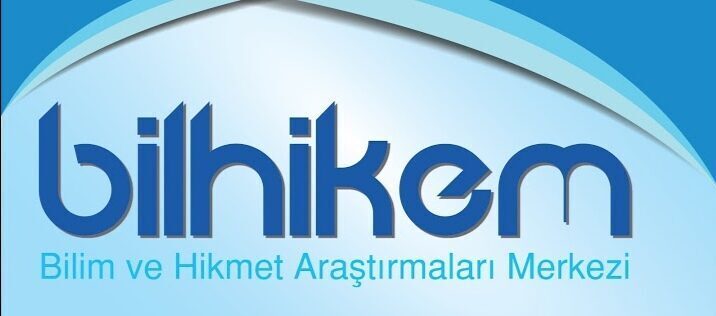
Dear Young Researchers
Contemporary Islamic Thought refers to the effort to examine the universal problems of the modern world and interpret Islamic practices in accordance with the fundamental references of the Islamic religion. In the process of reinterpreting traditional Islamic understanding in the context of modern thoughts, new scientific perspectives, political models, and rights, Muslim thinkers have sought to preserve the fundamental principles and values of the religion. While doing so, they have also endeavored to propose new solutions for social, political, and cultural challenges, adapting to the changing conditions of the modern world. These thinkers have explored the possibility of building a more livable world, taking into consideration existing crises.
We believe that the unique and diverse perspectives and proposed solutions of contemporary Muslim thinkers on global issues facing humanity are crucial for our future. In light of this importance, we have determined the main theme of the seventh Bilhikem Student Symposium, which has become a tradition, as “Contemporary Islamic Thought: Individuals, Issues, and Proposals.”
Having successfully completed the sixth Bilhikem Student Symposium, which brings together young researchers to present their academic efforts, we have immortalized the presentations through publication. Our social sciences-oriented symposiums have taken on a thematic format since last year and have gained an international dimension.
This year, with the contributions of the Oranje Instituut in the Netherlands, we aim to make the event more inclusive. We hope to share visions and forecasts regarding how Contemporary Islamic Thought can shape the future during the symposium. In this context, we express our great honor in welcoming you, esteemed young researchers, to our symposium to present the views and proposals of various thinkers that can be considered within this framework.
Symposium Organization Committee
SUBJECTS
Views, discussions, examinations, and proposals of all thinkers who have contributed to Islamic Thought in the last two centuries on religious, political, legal, and cultural issues…
Religious Issues and Proposals
Legal and Political Issues, Perspectives, and Solution Proposals
Economic Issues, Perspectives, and Solution Proposals
Cultural Issues, Perspectives, and Solution Proposals
SUMMARY WRITING RULES
The abstract should be a minimum of 150 and a maximum of 350 words.
There should be at least 5 keywords in the abstract.
The abstract should be written in Times New Roman 12 Point, single-spaced, and in a single paragraph.
The title of the paper must be included in the abstract.
The abstract should include the significance, purpose, problematic aspect, method, limitations, and possible findings of the paper.
FULL TEXT WRITING RULES
Should be written in Times New Roman 12 Point.
Should be written with 1.5 line spacing.
Main headings should be written in uppercase and bold.
Citations and references should be in the Isnad Citation System 2nd Edition style.
The full text should include the Abstract, Introduction, Conclusion, and References sections.
The full text should include an English abstract.
Full texts should be between 3500-5000 words.
IMPORTANT DATES
Abstract Submission Deadline: March 1, 2024
Announcement of Accepted Abstracts: March 11, 2024
Full Text Submission Deadline: May 11, 2024
Symposium Date: May 30-31, 2024
Note: The program will be face-to-face for those attending the symposium from Van. Those attending from outside Van can optionally present their papers online.
Note: The language of the symposium is Turkish, Arabic, and English.
Click Here to Apply for the 7th International Bilhikem Social Sciences Student Symposium!
